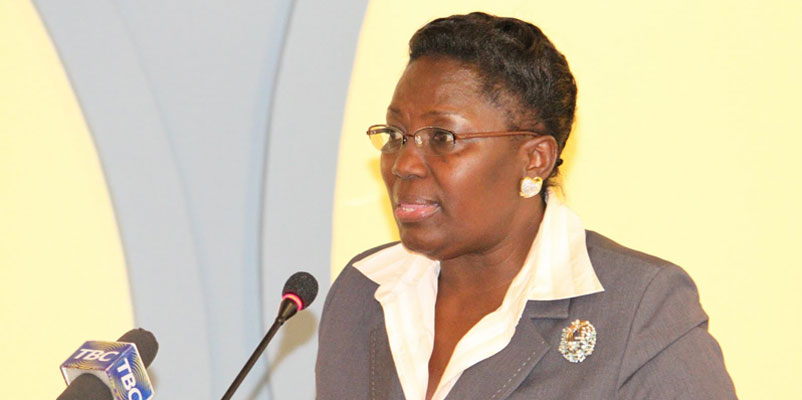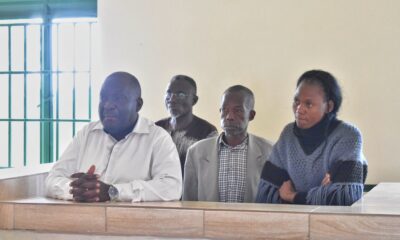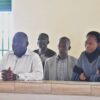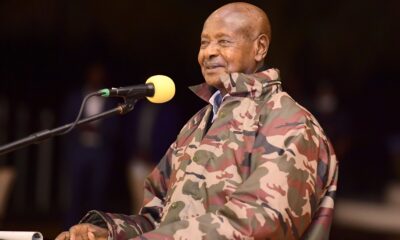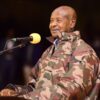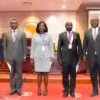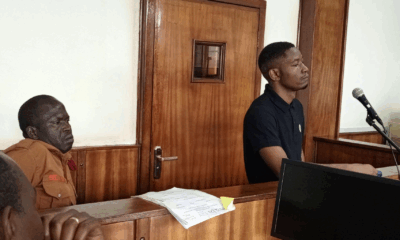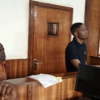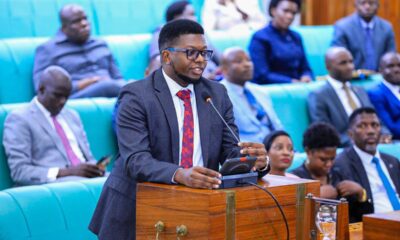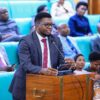News
Is Parliament a bunch of greedy, selfish individuals?
Civil society laments Parliament’s failure to check government excesses
The Speaker of the lower house of Australia’s Parliament Bronwyn Bishop was forced to resign her prestigious job a fortnight ago over an expenses scandal that exposed her use of US$5000 (Approx Ushs16m) of public funds for an unofficial fundraiser.
Most people in Australia had gotten mad about Bishop’s temptation to help herself on public funds for betraying the trust they had in her but also for going against the values held supreme by her society including zero-tolerance to corruption.
But in Uganda, Members of Parliament have turned the logic of good governance and service to the people on its head by continually taking huge sums of money in what many argue is broad-day robbery of tax-payers money.
The marked difference between Uganda and Australia is that not only did Ugandan legislators take so much more money than Bishop, but also they have comfortably walked away with the loot without much noise from the general public.
The more worrying thing perhaps is that the levels of tolerance to corruption in Uganda are rising. When MPs of the 7th Parliament received Ushs5m each for removing Term Limits from the Constitution in 2005, Ugandans were alarmed.
But subsequent payments to the legislators, such as the Ushs20m given to MPs in 2011 allegedly to monitor government programmes, and the most-recent mind-boggling Ushs100m to compensate MPs for millage or fuel used in consulting their constituents, which was given to each MP from tax payers coffers, have attracted only nuanced responses.
In fact according to former Ethics Minister Miria Matembe, ever since MPs received the Ushs5m to lift term limits, they have grown more insensitive and greedier for more money.
“Ever since the MPs took Ushs5m to lift term limits, that was the beginning of state-inspired corruption. The MPs have since entered into conspiracy to loot Ugandans. They started with five, now they are in hundreds of millions, the next thing you will hear is that they have each received billions,” said Matembe.
The Parliamentary Commission, the organ that is responsible for determining such rewards to MPs, explained the latest suspicious expenditure as accrued fuel allowances arising from increases in prices of oil since the start of the 9th Parliament.
Charles Rwomushana, one of those politicians who framed the 1995 constitution, this week described the MPs acceptance of Ushs100m as a dangerous precedent that has transformed the country’s politics into thuggery. Rwomushana argues that MPs, like other civil servants with government vehicles, are not eligible for mileage thus making the Parliamentary Commission’s decision dubious.
But the staggering payment to all 385 members, according to Matembe, was part of a bargain between the MPs and government after the legislators found the government had slotted a dubious Ushs500bn in the budget of Parliament this financial year.
A number of observers have indeed pointed out that every Ugandan has suffered the effects of inflation as have the MPs and so, the argument goes, the legislators’ explanations were mere excuses to rob the public.
The questionable expenditures come at the expense of more urgent national challenges such as the need to address the rising number of children who die or fail to achieve their full potential due to malnutrition, or failure to implement several key interventions such as introducing skills-training programmes in schools that would go a long way in addressing the grand challenges of unemployment in Uganda.
The worrying reality of Ugandan MPs seemingly unending story of dubious payments, according to Ciccy Kagaba, the Coordinator of the Anti-Corruption Coalition Uganda, is not just the payments, but rather the public’s conspicuous silence about it.
Even the Bank of Uganda, the custodians of prudent macro-economic stability didn’t hazard an analysis on the likely inflationary effects of the sudden injection of such a huge amount of cash into the economy.
Kagaba argues that the government’s growing impunity towards corruption including bribing of MPs, is driven largely by poverty among the masses who wield the power of the vote, coupled with low levels of awareness about the impact of the scourge on service delivery.
“All this is happening because of poverty. People are so poor and desperate that they are forced to surrender their votes in exchange for small things,” Kagaba adds: “Still many people are not aware of the deadly implications of corruption to their society.”
But Matembe has decried what she calls massive betrayal of Ugandans by our MPs.
“There is a conspiracy between government and Parliament to swindle the citizens,” Matembe says: “In fact they are thugs. They have robbed us and Ugandans should open their eyes and reject all of them in the coming elections.”
However, Matembe argues, the possibility of voting out the MPs because of corruption now is close to zero because of what she calls ‘over-commercialisation of politics,’
Kagaba supports Matembe’s view that commercialisation of politics has eroded people’s power to bring new leaders. Kagaba argues that politicians these days ensure that their money actually buys votes by deploying representatives who somehow force people to vote for them.
Conspiracy of the elites
The educated elites in Uganda, who would comprehend the adverse effects of corruption to society, do not care about stopping it because they think it does not affect them.
“The elite are in a comfort zone,” says Kagaba: “They think that as long as they can drive their cars and put food to table, they would rather mind other businesses. They forget that corruption has a spillover effect. They forget that they have relatives in villages who are affected by corruption, they forget that it affects the functioning of the entire government and therefore hurts their opportunities.
Opposition not any better
The Opposition in Parliament had cultivated an impression that they are clean and care about the plight of poor people, if the return of Ushs20m by many of the MPs on the left, as the opposition is referred to, is anything to go by. In fact, in order to provide the requisite checks and balances especially when it comes to government spending, enjoy the privilege of chairing all the powerful accountability committees of Parliament, including the Public Accounts Committee and the Local Government Committee.
But many people seem to have lost all confidence in the opposition as an alternative government to NRM.
“When it comes to money, the opposition is not any different. What we are witnessing is large-scale commercialisation of Uganda’s politics,” Kagaba goes ahead to slam Uganda’s Parliamentarians as a ‘bunch of selfish and greedy people.’
Not only have opposition MPs taken the controversial Ushs100m, they have pocketed money to block more important decisions to the future and lives of Ugandans.
Reliable sources have told The Sunrise that four members of the Parliament sitting on the Legal and Parliamentary Committee pocketed Ushs10m each from the Speakers Office last week, to withhold their signatures from a minority report on the Constitutional Amendments Bill.
The source in Parliament confirmed that only four MPs I.e Paul Mwiru, Medard Lubega Sseggona, Brenda Nabukenya, and Wilfred Niwagaba appended their signatures to the minority report.
Although majority on the committee are NRM MPs and had decided to reject the widely publicised Civil Society Reforms, the conspiracy between Opposition MPs to remain silent on their own positions, has dashed the hopes of some Ugandans in bringing about genuine reforms in Uganda’s elections.
Reaction
Outspoken Mukono Municipality MP Betty Nambooze told The Sunrise that some contribution towards fuel was a deserved move, although not to the proportion that was advanced to them.
She says: “I agree that the amount they gave to MPs was too high considering the problems facing our country.” She added however that since she and ten other MPs returned Ushs20m to government coffers in the previous Parliament, the Civil Society did nothing to push NRM legislators to do the same.
Nambooze says: “I have since learnt my lesson. I’ve taken back the money several times but at the end of the day, you do not see the civil society asking NRM MPs to do the same. I don’t want the civil society to demonize the opposition. What else should I do?” asked Nambooze.
Nambooze says that she has since taken a decision that whichever money that is given to MPs outside their regular pay, she will take it to her people to help lift their poor quality of healthcare.
“We have even ordered another ambulance to replace the one we bought from the money they gave MPs to buy cars. That ambulance has evacuated over 3000 patients and saved lives. It is now worn out and we are going to buy another one to supplement the existing one that has worn out,” said Nambooze.
Comments



